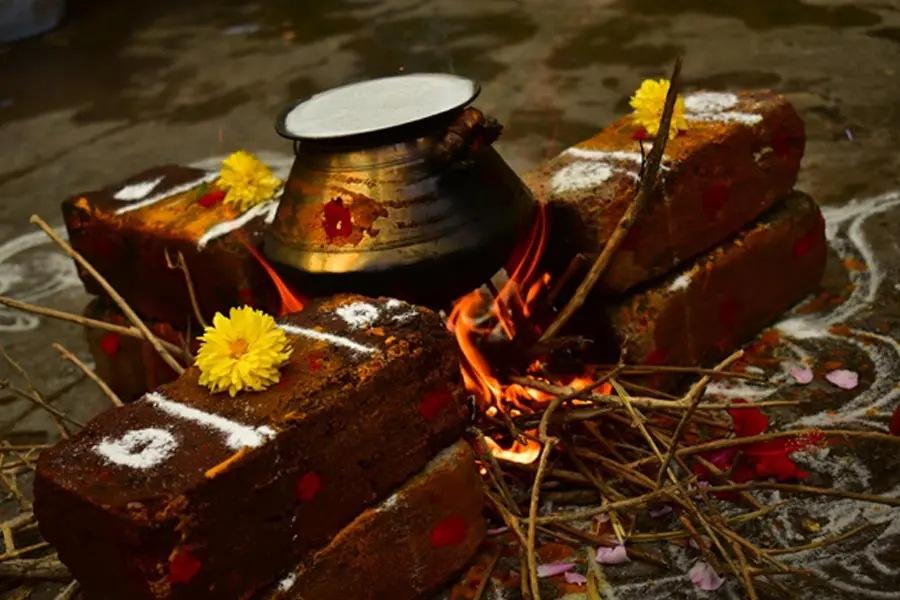Local Festivals: Tamil Nadu


Festivals form the crux of Indian culture and tradition. There are over 30 grand festivals celebrated across the nation. Each festival has great significance with respect to religion, terrain and season. Indian festivals bring us the image of vibrancy, happiness and heaps of lip smacking delicacies. While some are celebrated worldwide, there are many festivals that are rejoiced in the confines of states or even wee little hamlets. One such festival is Pongal, celebrated in Tamilnadu during the first 3 days of the Tamil month “Thai” which falls in mid-January.
Pongal is celebrated reverently by the farmers and the main motive is to pay gratitude to the Sun God for blessing the paddy crops. Even today, in various parts of the state, the hustle and bustle goes up a notch in the first 2 weeks of the year in preparation for Pongal. Houses get whitewashed, the front porches get decorated with colourful Rangolis, the cattle, which are the stars of this festival, get dolled up and on and on.
The first day of Pongal celebration is the Boghi which is symbolic to welcome new beginnings. On the night of Boghi, people burn their old clothes and items and get ready to enjoy the new ones from the next day.
The second day, Pongal, is the main day. Glorious pujas are done for the Sun; a sweet dish made out of rice, lentils, milk and jaggery is made as an offering and all the extended family gather round to enjoy it with breaking and eating some sugarcane as well. People start new ventures and buy gold on this holy day. The entire family dolls up with traditional dresses, women walk around adorning colourful sari/dhavani and accessorize with traditional gold/diamond earrings, Haram(long necklaces), amulets, otiyanam(hip chains), rings and so on. The men strut about in crisp white veshti with angavasthram and the iconic golden tiger claw chain or the navaratna ring.
The next day, maatu pongal or kaanum pongal is dedicated to the most important helper of the farmers, the cattle. Cows which are considered as holy beings in our country, are smeared with sandalwood paste and their horns shaped and coloured with vibrant hues are adorned with colourful flower garlands. Manjaverattu and Jallikattu are a few cattle-related sports that are celebrated on this day. The winner of these sport events are usually awarded with gold coins and best seeds for the next crop. The next day is Thiruvalluvar dhinam. It is celebrated in honour to the great poet Thirvalluvar who is well known for the Thirukural, one of the finest creations in Tamil literature.
Even after urbanization and moving away from the homeland, people try to go back to their roots during this festival, by dressing up in ethnic wear and dolling up with sparkling jewels, creating beautiful Rangolis be it individual houses or in apartments, making and sharing sweet pongal with neighbours, buying gold, making merry and sharing the happiness. Pongal is truly the festival that brings together the Tamils as a community.